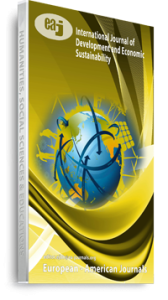The centrality of power in any political setting is axiomatic. Small wonder or no wonder capturing it has almost become a do or die affairs. It is incontrovertible that the nationalist struggle was not a power tussle among Nigerians but rather between Nigerians and the British colonialists. However, towards the twilight of independence, Nigeria’s political terrain has been fraught with rabid competition for power even up till now. While in other climes, leadership position to a reasonable extent is tied mainly to performance criteria, in Nigeria, it is laced with economic and ethnic connotations. The above scenario has become a perennial as well as recurring decimal in Nigeria. The corollary is the furore surrounding the 2015 general elections. The power melodrama pundits argue if not well managed can have serious implication for democratic consolidation particularly as the country approaches another election year. The paper affirmed that power sharing or rotational presidency lacks legitimacy. It assessed the federal character principle as enshrined in the 1999 constitution of Nigeria. The work examined the hurdles to 2015 general elections. It concluded by proposing some policy options while relying on secondary source of data.
Keywords: Democratic Consolidation, Election, Ethnicity, Good Governance, Power, Power-Sharing

